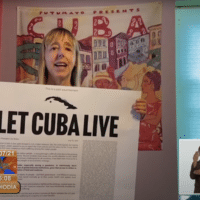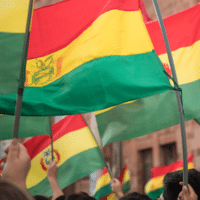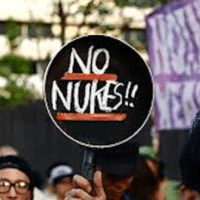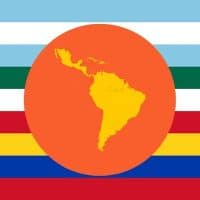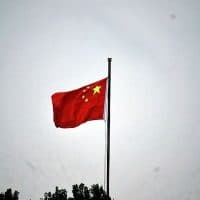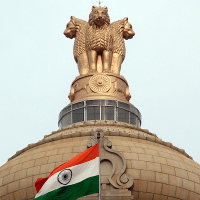-
The French are going, but the war in the Sahel continues
Captain Ibrahim Traoré, who leads the Burkinabé government, came to power through a coup d’état in September 2022. He ousted Lieutenant Colonel Paul-Henri Sandaogo Damiba, who had himself come to power through a coup in January 2022. Neither of these coups was a surprise.
-
Indigenous People of Brazil fight for their future
Brazilian President Jair Bolsonaro has given new license to the killing of Indigenous people in Brazil. Before he came to power in 2019, it wasn’t clear what he wanted to build, but he knew exactly who and what he wanted to destroy: the Indigenous people and the Amazon rainforest, respectively.
-
Enbridge Line 3: The climate disaster unfolding before our eyes
For Kali Akuno, co-founder and co-director of Cooperation Jackson, the wreckage of Hurricane Ida is a surreal reminder of what he and others in the Gulf Coast region experienced 16 years ago.
-
Let Cuba Live—The movement standing up to Biden’s maximum pressure campaign
On July 22, U.S. President Joe Biden and his Vice President Kamala Harris released a “fact sheet” on U.S. “measures” against Cuba. The release from the White House said that Cuba was a “top priority for the Biden-Harris administration.”
-
Sex workers and COVID-19: Resisting the pandemic and criminalization
Georgina Orellano, secretary-general of the Association of Women Sex Workers of Argentina (AMMAR), says that “the pandemic has highlighted the inequality” in society and deepened the problems faced by sex workers. Sex work, which is not recognized in Argentina, has become more precarious, she says.
-
The United States tries to take advantage of the price Cubans are paying for the blockade and the pandemic
This small island of 11 million people has created five vaccine candidates and sent its medical workers through the Henry Reeve International Medical Brigade to heal people around the world.
-
United States withdraws from Afghanistan? Not really
The U.S. invasion of Afghanistan in October 2001 was criminal. It was criminal because of the immense force used to demolish Afghanistan’s physical infrastructure and to break open its social bonds.
-
Despite U.S. dirty tricks, Bolivia is finding a way to stay independent
Pressure to prevent Morales from running in the election in 2019 mounted early, but it failed. The opposition—with the full backing of the U.S. government—tried to undermine the October 2019 election by painting it as fraudulent. With no real evidence, the military—with a green light from Washington, D.C.—moved against Morales, sending him into exile.
-
How ExxonMobil uses divide and rule to get its way in South America
ExxonMobil, one of the world’s largest oil companies (newly merged in 1998), signed an agreement with the government of Guyana in 1999 to develop the Stabroek block, which is off the coast of the disputed Essequibo region.
-
Why we can’t give up on the idea of a World free from nuclear weapons
On January 22, 2021, the Treaty on the Prohibition of Nuclear Weapons (TPNW) became international law for the 122 states who signed the agreement in July 2017.
-
How a lawbreaking international coalition failed to overthrow Venezuela’s government
On January 5, 2021, the newly elected National Assembly took its seats in Venezuela’s capital. That day the Lima Group released a statement most of its members signed saying that they did not recognize the legality of the assembly.
-
Why are people going hungry in India despite a massive grain surplus?
The peasants gathered on the Delhi border understand all these issues much more clearly than either Modi or the intelligentsia advocating a shift away from food grains. Ironically, it is the latter group who are suggesting that the peasants are ignoramuses!
-
Chomsky and Prashad: Three major threats to life on Earth that we must address in 2021
Large parts of the world—outside of China and a few other countries—face a runaway virus, which has not been stopped because of criminal incompetence by governments.
-
You don’t want to imagine an ocean without coral reefs—but you might have to
The reefs will die. That seems certain. The UNEP report will not circulate. That seems equally certain. The Marshall Islands and Rwanda will file their updates. That has already happened. Meanwhile, the United States and its allies will sit on the sidelines, expanding fracking with a “who cares” attitude.
-
Colombia’s President shows his disdain for democracy and Venezuelans
On December 8, a Conviasa flight prepared to take off from Caracas, Venezuela, for Mexico City. It planned to carry 200 election observers and journalists who came to Venezuela from a range of countries to monitor the National Assembly elections that were held on December 6.
-
Why imperialism is obsolete in Latin America
An interview with Jorge Arreaza, foreign minister of Venezuela.
-
Why Biden will keep the U.S.-imposed Cold War rolling
Much will certainly change in the world of U.S. foreign policy when Joe Biden enters the White House. There will be a more measured tone, and less reliance upon Twitter to announce U.S. policy.
-
China is working to expand its ties to Latin America
In mid-January 2020, 800 people gathered at Mexico’s Ministry of Economy to celebrate “China Day” with a seminar on Chinese-Mexican relations.
-
India’s move toward a de facto unitary state
India is being pushed toward a de facto unitary state, with states being kept totally out of the loop in decision-making, as seen in the new agricultural laws, goods and services tax compensation, Jammu and Kashmir bifurcation and new National Education Policy.
-
How India’s Modi is changing laws to help imperialists dominate the country’s agriculture
The fact that the Center made unilateral and fundamental changes in agricultural marketing arrangements that fall within the State List of the Seventh Schedule of the Constitution was a blow against federalism.




